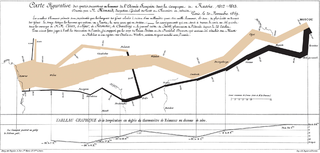Related Research Articles
A recommender system, or a recommendation system, is a subclass of information filtering system that provides suggestions for items that are most pertinent to a particular user. Recommender systems are particularly useful when an individual needs to choose an item from a potentially overwhelming number of items that a service may offer.

Ian Avrum Goldberg is a cryptographer and cypherpunk. He is best known for breaking Netscape's implementation of SSL, and for his role as chief scientist of Radialpoint, a Canadian software company. Goldberg is currently a professor at the Faculty of Mathematics of the David R. Cheriton School of Computer Science within the University of Waterloo, and the Canada Research Chair in Privacy Enhancing Technologies. He was formerly Tor Project board of directors chairman, and is one of the designers of off the record messaging.
Michael Irwin Jordan is an American scientist, professor at the University of California, Berkeley, research scientist at the Inria Paris, and researcher in machine learning, statistics, and artificial intelligence.

Kenneth Yigael Goldberg is an American artist, writer, inventor, and researcher in the field of robotics and automation. He is professor and chair of the industrial engineering and operations research department at the University of California, Berkeley, and holds the William S. Floyd Jr. Distinguished Chair in Engineering at Berkeley, with joint appointments in Electrical Engineering and Computer Sciences (EECS), Art Practice, and the School of Information. Goldberg also holds an appointment in the Department of Radiation Oncology at the University of California, San Francisco.

The University of California, Berkeley, School of Information, also known as the UC Berkeley School of Information or the I School, is a graduate school and, created in 1994, the second newest of the schools at the University of California, Berkeley since the founding of the UC Berkeley College of Computing, Data Science, and Society in 2023. It was previously known as the School of Information Management and Systems (SIMS) until 2006. Its roots trace back to a program initiated in 1918 which became the School of Librarianship in 1926 and, with a broader scope, the School of Library and Information Studies in 1976. The program is located in the South Hall, near Sather Tower in the center of the campus.

Data and information visualization is the practice of designing and creating easy-to-communicate and easy-to-understand graphic or visual representations of a large amount of complex quantitative and qualitative data and information with the help of static, dynamic or interactive visual items. Typically based on data and information collected from a certain domain of expertise, these visualizations are intended for a broader audience to help them visually explore and discover, quickly understand, interpret and gain important insights into otherwise difficult-to-identify structures, relationships, correlations, local and global patterns, trends, variations, constancy, clusters, outliers and unusual groupings within data. When intended for the general public to convey a concise version of known, specific information in a clear and engaging manner, it is typically called information graphics.

Fernanda Bertini Viégas is a Brazilian computer scientist and graphical designer, whose work focuses on the social, collaborative and artistic aspects of information visualization.

Eric Paulos is an American computer scientist, artist, and inventor, best known for his early work on internet robotic teleoperation and is considered a founder of the field of Urban Computing, coining the term "urban computing" in 2004. His current work is in the areas of emancipation fabrication, cosmetic computing, citizen science, New Making Renaissance, Critical Making, Robotics, DIY Biology, DIY culture, Micro-volunteering, and the cultural critique of such technologies through New Media strategies.
Jock D. Mackinlay is an American information visualization expert and Vice President of Research and Design at Tableau Software. With Stuart Card, George G. Robertson and others he invented a number of information visualization techniques.

The California Institute for Quantitative Biosciences (QB3) is a nonprofit research and technology commercialization institute affiliated with three University of California campuses in the San Francisco Bay Area: Berkeley, San Francisco, and Santa Cruz. QB3's domain is the quantitative biosciences: areas of biology in which advances are chiefly made by scientists applying techniques from physics, chemistry, engineering, and computer science.
Brian A. Barsky is a professor at the University of California, Berkeley, working in computer graphics and geometric modeling as well as in optometry and vision science. He is a Professor of Computer Science and Vision Science and an Affiliate Professor of Optometry. He is also a member of the Joint Graduate Group in Bioengineering, an inter-campus program, between UC Berkeley and UC San Francisco.

GroupLens Research is a human–computer interaction research lab in the Department of Computer Science and Engineering at the University of Minnesota, Twin Cities specializing in recommender systems and online communities. GroupLens also works with mobile and ubiquitous technologies, digital libraries, and local geographic information systems.

Michael Ralph Stonebraker is a computer scientist specializing in database systems. Through a series of academic prototypes and commercial startups, Stonebraker's research and products are central to many relational databases. He is also the founder of many database companies, including Ingres Corporation, Illustra, Paradigm4, StreamBase Systems, Tamr, Vertica and VoltDB, and served as chief technical officer of Informix. For his contributions to database research, Stonebraker received the 2014 Turing Award, often described as "the Nobel Prize for computing."
The Berkeley Center for New Media (BCNM) is a research, teaching, and public events program at UC Berkeley. Its mission is to critically analyze and help shape developments in new media from cross-disciplinary and global perspectives that emphasize humanities and the public interest. Founded in 2004 by Linda Williams, Ken Goldberg, Greg Niemeyer, Whitney Davis, and Cathy Koshland, the organization seeks to study new media from three disciplinary perspectives, the humanities, the arts, and technology. BCNM awards Designated Emphasis Degrees in New Media and Masters Certificates to graduate students and Undergraduate Certificates to undergraduate students at UC Berkeley.
Learning to rank or machine-learned ranking (MLR) is the application of machine learning, typically supervised, semi-supervised or reinforcement learning, in the construction of ranking models for information retrieval systems. Training data may, for example, consist of lists of items with some partial order specified between items in each list. This order is typically induced by giving a numerical or ordinal score or a binary judgment for each item. The goal of constructing the ranking model is to rank new, unseen lists in a similar way to rankings in the training data.

Jitendra Malik is an Indian-American academic who is the Arthur J. Chick Professor of Electrical Engineering and Computer Sciences at the University of California, Berkeley. He is known for his research in computer vision.

Marti Hearst is a professor in the School of Information at the University of California, Berkeley. She did early work in corpus-based computational linguistics, including some of the first work in automating sentiment analysis, and word sense disambiguation. She invented an algorithm that became known as "Hearst patterns" which applies lexico-syntactic patterns to recognize hyponymy (ISA) relations with high accuracy in large text collections, including an early application of it to WordNet; this algorithm is widely used in commercial text mining applications including ontology learning. Hearst also developed early work in automatic segmentation of text into topical discourse boundaries, inventing a now well-known approach called TextTiling.

Katherine "Kathy" Anne Yelick, an American computer scientist, is the vice chancellor for research and the Robert S. Pepper Professor of Electrical Engineering and Computer Sciences at the University of California, Berkeley. She is also a faculty scientist at Lawrence Berkeley National Laboratory, where she was Associate Laboratory Director for Computing Sciences from 2010–2019.

The California Report Card (CRC) is a mobile-optimized web application designed to promote public involvement in the California government. Developed by Prof. Ken Goldberg and the CITRIS Data and Democracy Initiative at UC Berkeley with California Lt. Governor Gavin Newsom, version 1.0 was released in January 2014. On the CRC site, participants are encouraged to grade California on a scale from A+ to F on six timely topics and to propose their own suggestions of issues that merit attention at the state level. The CRC is a form of E-democracy, structuring and streamlining communication from the California residents to their elected officials.

Jeffrey Michael Heer is an American computer scientist best known for his work on information visualization and interactive data analysis. He is a professor of computer science & engineering at the University of Washington, where he directs the UW Interactive Data Lab. He co-founded Trifacta with Joe Hellerstein and Sean Kandel in 2012.
References
- ↑ "Opinion Space". Berkeley Center for New Media. Archived from the original on 2010-06-29. Retrieved 2010-11-21.
- ↑ "Unknown". Archived from the original on 2013-09-14. Retrieved 2013-07-27.[ permanent dead link ]
- ↑ "Unknown". Archived from the original on 2013-05-09. Retrieved 2013-07-27.[ permanent dead link ]
- ↑ "Welcome to Opinion Space 2.0". Archived from the original on 2013-05-09. Retrieved 2013-07-27.
- ↑ "Department of State Launches New Tool to Foster Online Open Dialogue March 15, 2010". Archived from the original on November 20, 2010. Retrieved November 21, 2010.